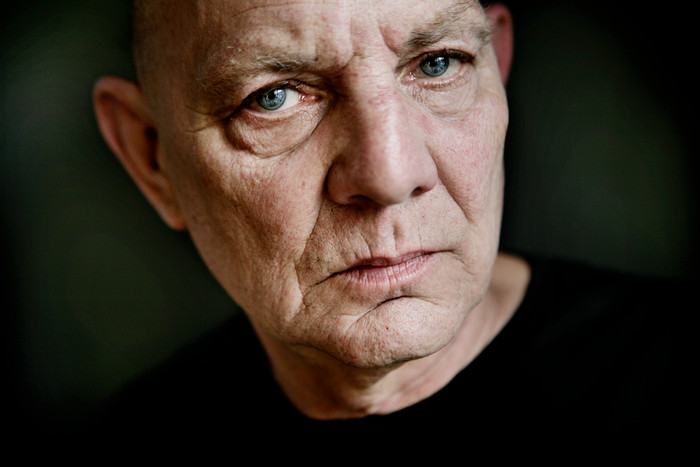Few other Swedish artists have, with the same consistency, put a finger on contemporary trends in Swedish society. Not only does Norén represent an epoch all of his own in Swedish literature and drama, he also created entirely new words which will continue to resonate in the collective Swedish self-image. One example of these is “Norénjul” (“Norén Christmas”, which is a darker equivalent to “Bergman Christmas”), which is probably used by more than have seen the plays that gave rise to the expression. This confirms his influence on the public consciousness.
With an oeuvre that spans six decades and includes poems and novels as well as an almost unfathomable number of plays and the recent infamous four volumes of diaries, Lars Norén’s interest throughout the individual’s place in the collective. This was expressed in an uncompromising examination of the very heart of both the individual and the surrounding society. And, not least, the audience – a relationship he came to develop with plays such as Personkrets 3: 1, 7: 3 and Skuggpojkarna.
This could also be one of the explanations for Lars Norén’s great international success. His plays have been staged regularly in both France and Germany, where he is ranked alongside August Strindberg and Ingmar Bergman. As recently as 2008, the play Krig was performed in both New York and Moscow, on both occasions in collaboration with the Swedish Institute.
– Many Swedes have their own personal favourite among Norén’s work. Some value his poetry, others have discovered him through his diaries. My own favorite is Stillheten, in Erik Stubø’s production at the Stockholm City Theatre in 2011. Norén has left deep, almost indelible, imprints in the Swedish self-image with his razor-sharp depictions. A great Swedish contemporary interpreter has tragically passed away, says Madeleine Sjöstedt, Director-General of the Swedish Institute.
